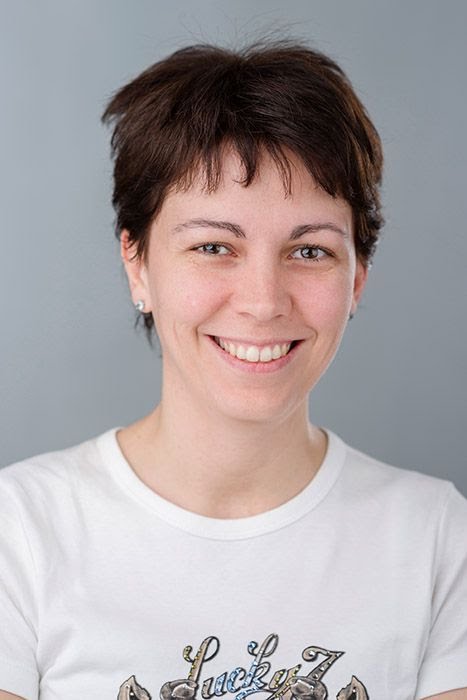Studying at the University of Verona
Here you can find information on the organisational aspects of the Programme, lecture timetables, learning activities and useful contact details for your time at the University, from enrolment to graduation.
Academic calendar
The academic calendar shows the deadlines and scheduled events that are relevant to students, teaching and technical-administrative staff of the University. Public holidays and University closures are also indicated. The academic year normally begins on 1 October each year and ends on 30 September of the following year.
Course calendar
The Academic Calendar sets out the degree programme lecture and exam timetables, as well as the relevant university closure dates..
| Period | From | To |
|---|---|---|
| primo semestre | Sep 14, 2015 | Jan 8, 2016 |
| secondo semestre triennali | Feb 15, 2016 | Jun 1, 2016 |
| Session | From | To |
|---|---|---|
| appelli sessione invernale | Jan 11, 2016 | Feb 13, 2016 |
| prove intermedie secondo semestre | Apr 11, 2016 | Apr 15, 2016 |
| appelli sessione estiva | Jun 6, 2016 | Jul 9, 2016 |
| Appelli sessione autunnale | Aug 29, 2016 | Sep 16, 2016 |
| prove intermedie primo semestre | Nov 2, 2016 | Nov 6, 2016 |
| Session | From | To |
|---|---|---|
| sessione autunnale | Dec 11, 2015 | Dec 18, 2015 |
| sessione invernale | Apr 6, 2016 | Apr 8, 2016 |
| sessione estiva | Sep 13, 2016 | Sep 14, 2016 |
| Period | From | To |
|---|---|---|
| vacanze natalizie | Dec 23, 2015 | Jan 5, 2016 |
| vacanze pasquali | Mar 25, 2016 | Mar 29, 2016 |
| vacanze estive | Aug 8, 2016 | Aug 27, 2016 |
Exam calendar
Exam dates and rounds are managed by the relevant Economics Teaching and Student Services Unit.
To view all the exam sessions available, please use the Exam dashboard on ESSE3.
If you forgot your login details or have problems logging in, please contact the relevant IT HelpDesk, or check the login details recovery web page.
Academic staff
 claudio.baccarani@univr.it
claudio.baccarani@univr.it
Borello Giuliana
 giuliana.borello@univr.it
giuliana.borello@univr.it
 045 802 8493
045 802 8493
 simona.gamba@univr.it
simona.gamba@univr.it
Study Plan
The Study Plan includes all modules, teaching and learning activities that each student will need to undertake during their time at the University.
Please select your Study Plan based on your enrollment year.
1° Year
| Modules | Credits | TAF | SSD |
|---|
2° Year activated in the A.Y. 2016/2017
| Modules | Credits | TAF | SSD |
|---|
3° Year activated in the A.Y. 2017/2018
| Modules | Credits | TAF | SSD |
|---|
| Modules | Credits | TAF | SSD |
|---|
| Modules | Credits | TAF | SSD |
|---|
| Modules | Credits | TAF | SSD |
|---|
| Modules | Credits | TAF | SSD |
|---|
Legend | Type of training activity (TTA)
TAF (Type of Educational Activity) All courses and activities are classified into different types of educational activities, indicated by a letter.
Financial markets and Institutions (2017/2018)
Teaching code
4S00429
Academic staff
Coordinator
Credits
9
Language
Italian
Scientific Disciplinary Sector (SSD)
SECS-P/11 - FINANCIAL MARKETS AND INSTITUTIONS
Period
Primo Semestre Triennali dal Sep 18, 2017 al Jan 12, 2018.
Learning outcomes
The course provides a fundamental knowledge of Financial intermediation. The aim of the course is to provide students with both concepts and methodologies useful to analyse the role and the dynamics of the financial system. During the course, the structure of the financial system, the technical features of financial instruments, the regulatory context and monetary policy will be investigated, ensuring specific attention to the different functions performed by financial institutions and financial markets and their role within the broader economic system.
After the course, students will have deepened the financial dimension of the economic system and will be supposed to autonomously evaluate the dynamics of financial institutions.
Program
1. Structure and functions of the financial system
2. Financial instruments: bonds, stocks and derivatives
3. Financial markets: functions and operating modes
4. Financial institutions: banks, securities financial institutions and insurance companies
5. Monetary policy
Teaching methods: Lectures and, when needed, experts’ insights on specific topics. During the course, project works might be requested to further explore specific topics.
Teachers will be available during office hours all year long.
Further information will be available of the e-learning page of the course as soon as lessons begin.
FERRARI A, GUALANDRI E., LANDI A., VEZZANI P., Il sistema finanziario: funzioni mercati e intermediari, Giappichelli, 5th edition, 2016.
MUNARI L. (a cura di), Strumenti finanziari e creditizi, McGraw-Hill, 2015: chapters 6, 7, 8, 9, 10, 17, 18.
Further readings on specific topics will be made available on the e-learning page for the course.
Textbooks and further readings are consistent with the syllabus.
| Author | Title | Publishing house | Year | ISBN | Notes |
|---|---|---|---|---|---|
| FERRARI A, GUALANDRI E., LANDI A., VEZZANI P. | Il sistema finanziario: funzioni mercati e intermediari (Edizione 5) | Giappichelli | 2016 | ||
| MUNARI L. (a cura di) | Strumenti finanziari e creditizi | McGraw-Hill | 2015 |
Examination Methods
Written test made up of short-answer questions and exercises, with no distinction between attending and non-attending students.
Students are given the opportunity to take a partial interim review about:
- FERRARI A, GUALANDRI E., LANDI A., VEZZANI P., Il sistema finanziario: funzioni mercati e intermediari, Giappichelli, 5th edition, 2016, chapters 1, 2 and 5
- MUNARI L. (a cura di), Strumenti finanziari e creditizi, McGraw-Hill, 2015, chapters 7, 8, 9 and 17.
The partial interim review counts 40% of the overall mark for the exam.
If students get a positive mark (at least 18 out of 30), they will not be assessed on the above chapters again.
Students that get a positive mark in the interim partial review must take the exam on the remaining syllabus in the winter session. Both exams must be valued with positive marks.
Type D and Type F activities
Modules not yet included
Career prospects
Module/Programme news
News for students
There you will find information, resources and services useful during your time at the University (Student’s exam record, your study plan on ESSE3, Distance Learning courses, university email account, office forms, administrative procedures, etc.). You can log into MyUnivr with your GIA login details: only in this way will you be able to receive notification of all the notices from your teachers and your secretariat via email and soon also via the Univr app.
Graduation
List of theses and work experience proposals
| theses proposals | Research area |
|---|---|
| Proposte di tesi triennali | Various topics |


























